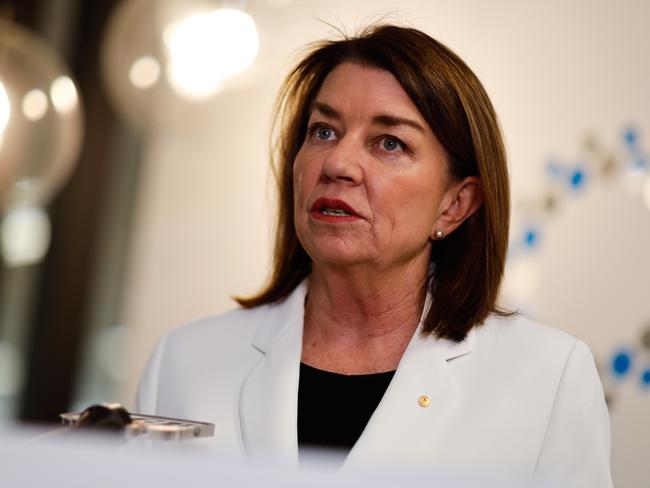Facial ID on the cards for Aussies opening new bank accounts to combat scams
Massive changes are being introduced at Australia’s banks to stop rampant fraud and scams - but what will it mean for everyday customers?

NSW
Don't miss out on the headlines from NSW. Followed categories will be added to My News.
Australians opening new bank accounts will have to undergo facial ID checks and online transfers of money between accounts will be subjected to stricter checks - including requiring a name and not just account numbers when sending money online - under a radical crack down on scams and fraud.
The sweeping changes are part of a new “Scam-Safe Accord” to be announced on Friday by all the nation’s banks and credit unions to combat the growing problem of fraudsters stealing identities and scamming consumers.
Every bank in Australia next year will begin rolling out the new “confirmation of payee” name checking technology - which will require including a name when transferring money online, not just a BSB and account number.
Australian customers should also expect more warnings and delays when transferring money online to someone new or increasing their payment limits, the Australian Banking Association (ABA) says.
“This Scam-Safe Accord is a new offensive in the war on scams,” ABA chief executive Anna Bligh said.

In a statement, the association said all banks will adopt more technology and controls to prevent identity fraud, “including major banks using at least one biometric check for new customers opening accounts online by the end of 2024”.
“To prevent misuse of accounts through identity fraud, all banks will uplift technology and controls, including all major banks introducing unique identification measures known as biometric checks when opening new accounts,” the association said.

Biometric checks have become standard in border security and include facial identification, fingerprints or voice recognition.
Currently, BSB, account numbers and account names are not matched when consumers move money online between bank accounts - so the new “confirmation of payee” system will make it harder for scammers to manipulate people into transferring money.
The banks also flagged they will limit payments to “high-risk channels” such as some crypto currency platforms.
In addition, the accord will include a better intelligence sharing across the sector - with all banks acting on scams intelligence from the Australian Financial Crimes Exchange by mid-2024, and joining the Fraud Reporting Exchange.
“Recent data from banks shows that $600 million in stolen funds been returned to customers over the last year,” Ms Bligh said.
“To keep up this effort it is critical that government, banks, telcos, social media and crypto platforms work together as part of an ecosystem to stay one step ahead of sophisticated criminal gangs.”
The latest Targeting Scams report found Australians lost a record $3.1 billion to scams in 2022 - an 80 per cent increase on total losses recorded the year before.





